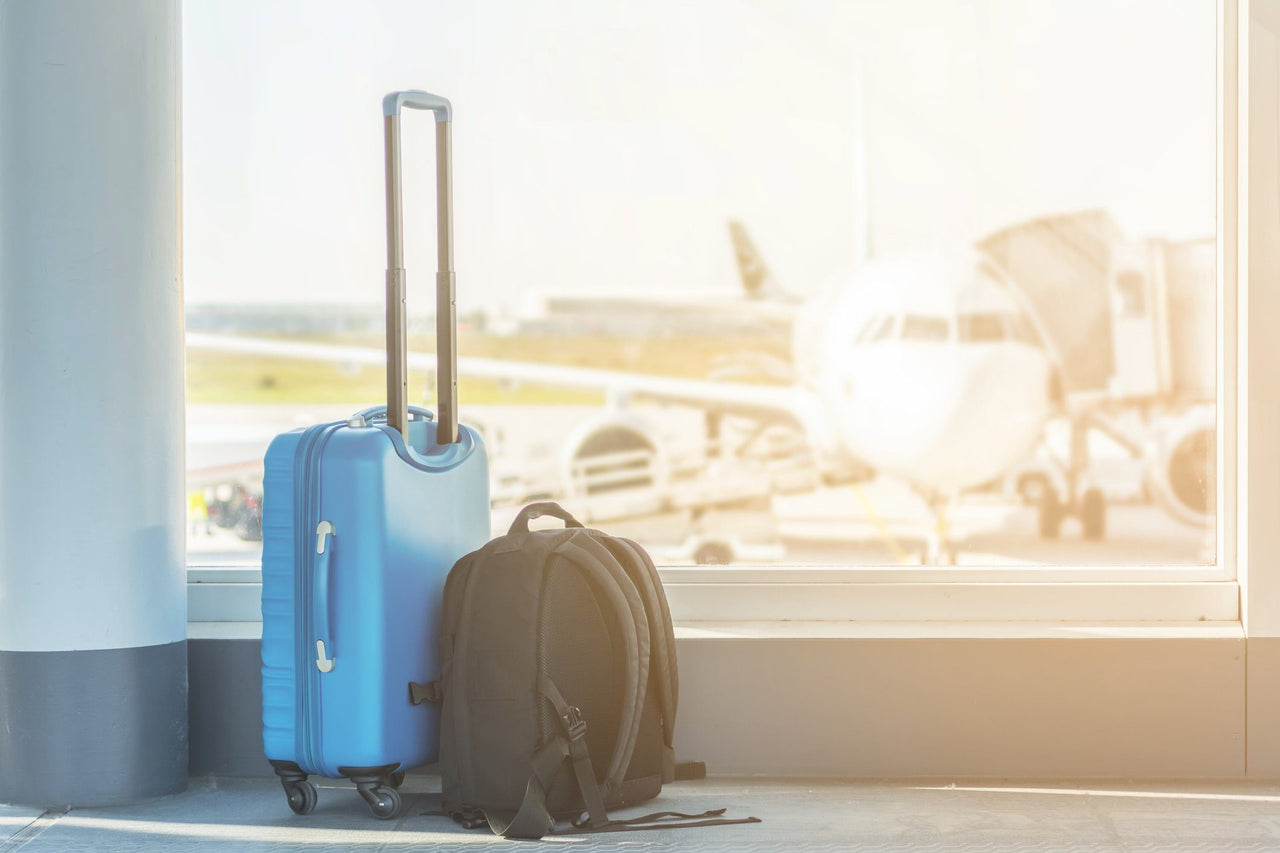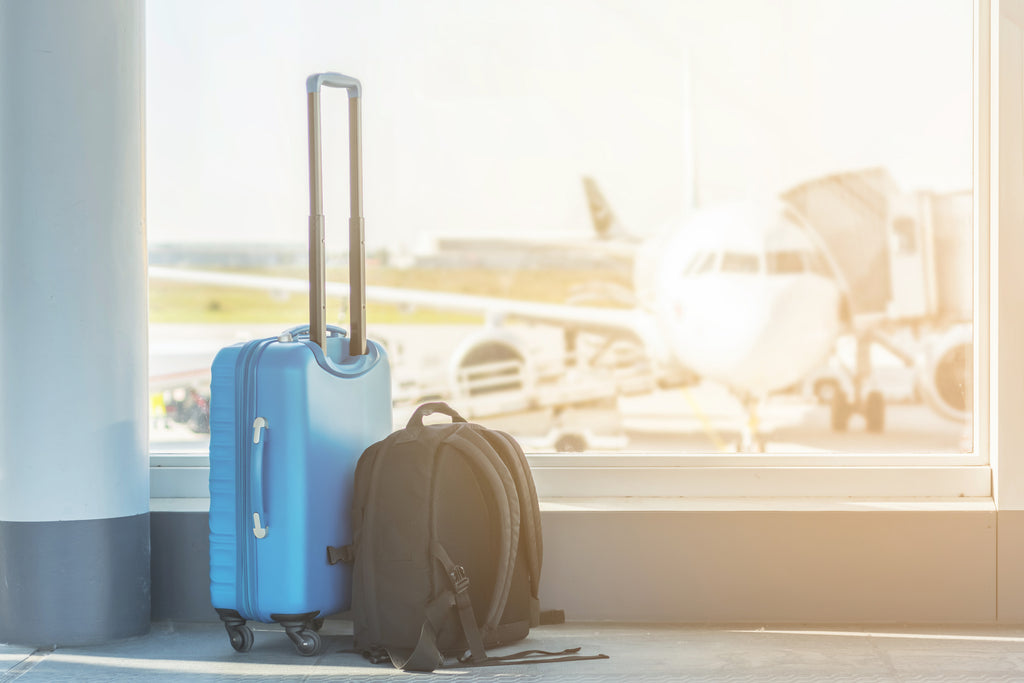10 Essential Tips for Sleeping While Traveling


Everyone responds to travel differently on a physical and psychological level. Some people get excited or nervous every time they fly while others sleep through the entire flight every time. Some get travel-belly and can't eat more than crackers, some get ravenously hungry every time they travel. And when it comes to sleeping away from home, we each have a unique experience.
You may have a lucky friend or family member who loves to sleep away from home and gets a deep energizing night's sleep every time they travel. But if you've found your way to this blog, chances are you're one of the many who find themselves lying awake at night in an incredibly comfortable bed unable to fall asleep.
Maybe you're like this every time you travel, or just for the trips that are particularly stressful or exciting, or only when you travel over time zones. But not sleeping while traveling is the wrong answer for both vacations and business trips where you need to be fresh and at your best for the next day.
So today, we're here to share a few tips on how to get yourself into a deeper and more productive sleep when you travel.
1. Know Your Sleep Triggers
Your brain is designed to help you sleep at night. That's is why you tend to get sleepy about an hour before bedtime every day.
But it's not just the time of day that tells your brain and body when to be sleepy. There are also other triggers that cue your body to prepare for bed-time. And for each of us, these triggers are different.
You might, for example, watch a particular show to wind down for bed, and are reliably sleepy at the end. Or you might start the white noise in your room, or dim all the lights in your house one by one.
These little cues can also work in a hotel room or as a guest. If you know your own sleep triggers, you can bring some of them with you when you travel and ensure you’re sleepy on schedule.
2. Pack Earplugs and a Sleeping Mask
One of the biggest problems with sleeping on the road is the new environment. The changing lights from outside your window and the room's new set of sounds can distract you and keep you awake.
That is why earplugs and a sleeping mask are a traditional solution for travel sleeping. The sleeping mask allows you to spend the necessary bedtime hours in complete darkness, so you're not awakened at dawn when the sun peeks around your curtains. And the earplugs prevent strange sounds from disturbing your relaxation.
These solutions work particularly well if you use a sleeping mask and earplugs at home and, therefore, have turned them into a sleep trigger.
3. Don't Have a Drink
It's a well-known fact that both caffeine and alcohol can interfere with your sleep, especially if you drink more than you usually do in a day.
It's also a common myth that an alcoholic drink before bed will help you sleep.
And today, coffee is so standard that many people think a cup before bed is a good and practical idea. If you want to get to sleep, don't.
A drink on the plane or in the hotel bar before bed might make you feel sleepy, but your sleep will be of poor quality, and you are likely to be re-introduced to your travel insomnia when the alcohol wears off.
And as for coffee, caffeine is a stimulant. If you already have trouble sleeping away from home, caffeine certainly won't help.
4. Shower When You Get to the Hotel
Your ability to fall asleep affects your physical comfort. And traveling by car, boat, train, or plane is enough to make anyone feel a little grimy.
The longer you feel relaxed before bed, the easier it will be to fall asleep. As soon as you have some time in your hotel room, take a moment to shower and change clothes. You'll feel worlds better, and you might be surprised how much a few extra hours of feeling fresh can help you sleep later on.
Showering also raises, then lowers your body temperature, which is excellent for getting to sleep.
5. Have a Comfortingly Familiar Dinner
Being a food tourist is fun. But it's essential to choose your travel food based on your needs first and whimsy second.
If you tend to have a delicate stomach or trouble sleeping on the road, choose your dinner wisely. Save the exotic chef special for lunch tomorrow and settle your stomach for the first night with something soothing and familiar.
6. Use a Mobile White-Noise Generator
Sometimes, earplugs aren't enough to change your awareness that you're in a strange place by noise alone. And sometimes, a complete lack of noise is also enough to keep you awake. If this is your problem, white noise is the ultimate solution. And you don't need a fancy device to make it.
White noise is just audio tracks that feature soft whooshing sounds, and you can play these tracks from your phone, tablet, laptop, or iPod paired with a decently powerful portable sleeper.
Set up your white noise, crank up the bass, and let yourself drift off to sleep. White noise works exceptionally well if you use white noise to sleep at home and are using the same track to sleep on the road.
7. Change Into Pajamas
We can’t emphasize this enough: DO NOT sleep in your clothes if you want to get to sleep.
While it may be tempting to flop into the bed wearing whatever you put on after your shower, take the time to change into pajamas.
And of course, to do that, you'll need to have packed pajamas. Ideally, bring the same old t-shirt and shorts or pajama pants you'd typically wear to bed. The familiar feel and smell of them will also help you get to sleep.
8. Remember to Adjust the Room AC
The hotel sets the room AC to its default setting when they do housekeeping between guests, but that may not be the right setting for you to get a deep night's sleep.
Don't leave the AC on its default settings unless you indeed are comfortable. Take a moment to check out the controls, figure out what settings you have control over, and optimize.
If you are too hot or too cold, it will be harder to sleep.
9. Throw a Towel Over Your Head
Whether it's light, sound, or the unfamiliar flow of air over your face, sometimes a towel or a light blanket over your head can help. Trust us as a matter of experience.
Sometimes, a towel over the head is the difference between lying awake at night and rolling over into a deep night-long slumber.
10. Pack Your Bedding
The feeling of new sheets might also contribute to your unwanted wakefulness in hotels. If the sheets are scratchy, that can keep you awake. If they are too starched, that can keep you awake. If they are too soft, the strangeness can distract you from sleep.
One interestingly useful way to travel is with a spare sheet and a pillow.
You can use two sheets inside the hotel bedding or wrap yourself in one sheet which still allows you to enjoy the mattress, pillows, and blankets while sleeping in the familiar feeling of your sheets from home.
Though sleeping while traveling is harder for some people than others, if you are someone who traditionally has trouble sleeping on the road or are having newfound travel insomnia just this once, we hope these tips help. For more fun and useful insights into the incredible world of sleep, contact us today.



